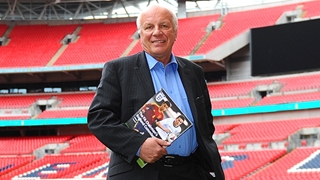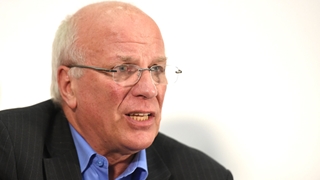
How many more Harry Kanes are there out there?
That was the question asked by FA Chairman Greg Dyke as he spoke of The FA’s obligation to young home grown talent during an update of the England Commission.
Dyke wants a reduction in the maximum number of non-home grown players permitted in a club’s first team squad of 25 from 17 to 13. This would ensure that in a squad of 25, 12 players would have to be home grown.
Dyke referenced the rise of young Tottenham Hotspur striker Kane, currently the joint-top goalscorer in the Premier League, who recently earned his first call-up to the England senior team, as he outlined his ambitions to help clubs unearth the next generation of top English talent.
He said: “Harry Kane is an interesting case.
“Suddenly an English kid, who was out on loan at four different places – who it was touch and go with as to whether he’d get in [Tottenham’s] first team – is suddenly the top scorer in English football, which is great news.
“How many more Harry Kanes are there out there, who just can’t get a game?
“I think some [clubs] will [buy into the proposals], some won’t. We will go around the clubs, discuss it and try to convince them.
“I think Harry Kane is a good example. We could ask clubs ‘are you sure you haven’t got [the next] Harry Kane playing in your youth teams?’
“We have an obligation to these kids. There are an awful lot of very talented kids who are going into professional football clubs at a very young age and an awful lot getting lost.”
He continued: “What is particularly worrying, is among the top Premier League clubs there are, on average, fewer English players playing regularly than ever before. This is a 20-year trend that shows no sign of reversing.
“Only 22% of the starters in the current top four teams are qualified to play for England compared to 28% last year.”
The FA Chairman believes the proposal is “a significant step forward” as he embarks on the next chapter of the England Commission.
The England Commission outlined its initial report in September 2013 and finalised its proposals in October 2014. Since then, Dyke has worked to progress the outcomes.
There were two further points to note regarding the regulations concerning home grown players.
The Commission called for a change in the definition of ‘home grown player’ to any player irrespective of his nationality who has been registered with any club affiliated to The FA or Football Association of Wales for a period of three years prior to the player’s 18th birthday, rather than 21st birthday as it stands currently.
And it also wants the introduction of a requirement that at least two home grown players are also club trained players.
“All players need
to be given a chance at the start of their careers. This isn't happening enough
in England”
Greg Dyke FA Chairman
A ‘club trained player’ is defined as any player, irrespective of nationality, that has been registered for three years at their current club prior to a player’s 18th birthday. UEFA already apply a similar rule in the Champions League.
Dyke added: “All players, regardless of how good they are or where they come from, need to be given a chance at the start of their careers. This isn’t happening enough in England.
“We have a brilliant development tool in [the] Elite Player Performance Plan that we believe in, the Premier League believe in and believe is increasingly working – to validate it we need to see more players from academies playing in first teams.
“This is our job not just because it will increase the pool of talent available to the England manager, but also because the development of genuine, local talent is fundamental to the sustainability of our clubs and the health of our national game.
“We believe too many talented English kids are currently not getting through the system and being lost.”











